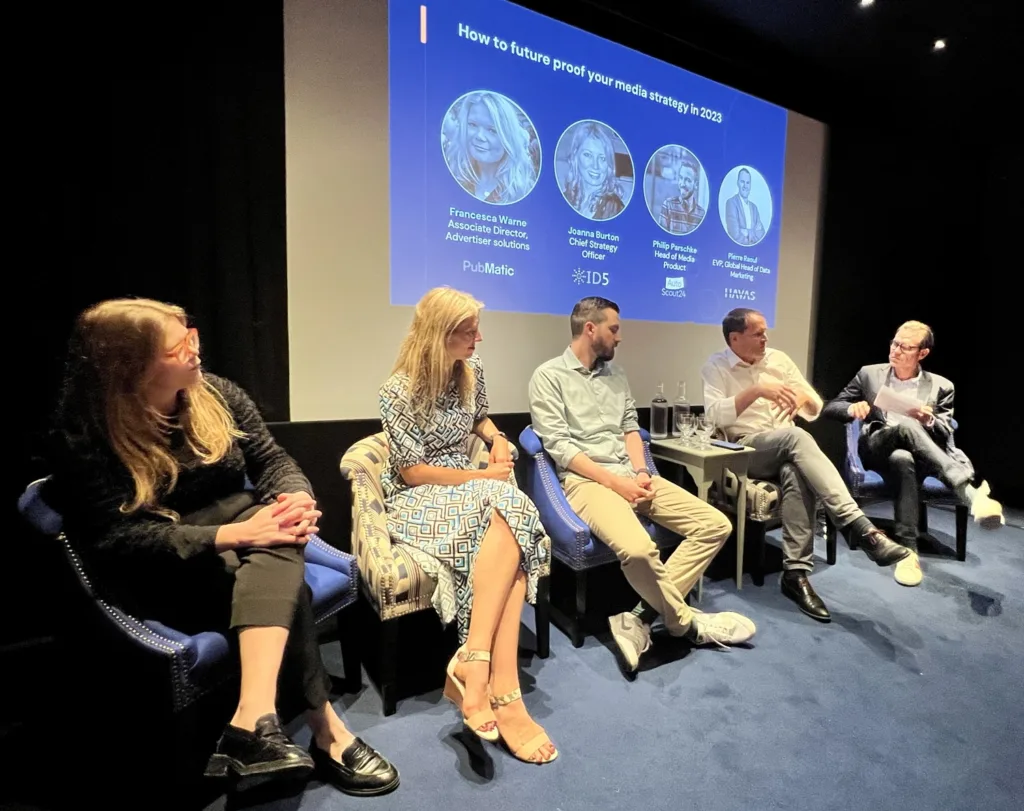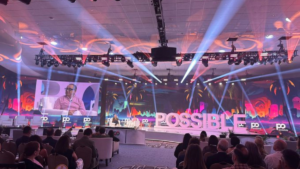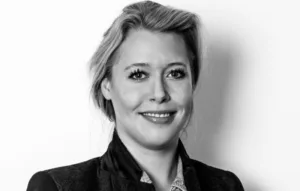The ‘2023’s Media Landscape: Delivering value in a fragmented world’ event, presented by mediarithmics in association with New Digital Age, looked at the opportunities and challenges being presented by the deprecation of third-party cookies, CTV, and retail media.
Speakers at the event included representatives from IAB UK, Channel 4, LG Ads, Magnite, LeMay.tv, PubMatic, ID5, AutoScout24, Havas, Dunnhumby, Criteo, and InfoSum.
The media landscape has never been more challenging than it is today and, faced with a number of issues, the entire ecosystem is looking for solutions. Even the emergence of channels such as connected TV (CTV) and retail media, and the opportunities they bring, have brought new complexities, particularly when it comes to the use of data to improve consumer experience and drive revenues.
With challenges in mind, mediarithmics partnered with New Digital Age to deliver an event looking at how to deliver media strategies that offer value for publishers, advertisers, and audiences alike.
Digital advertising is booming
IAB UK CEO, Jon Mew, kicked off the 2023’s Media Landscape: Delivering value in a fragmented world half-day event by looking at the state of digital advertising in the UK, breaking down some of the factors that led to digital ad spend reaching £26.1 billion in 2022.
“In 2021, the market went up by just over 40%, which was the biggest ever increase, in the middle of everything that’s going on in the world,” said Mew. “There was incredibly consistent growth of digital advertising in the UK until Covid, then the market tailed off for a year. Then, after that, it went way above where it would’ve been. This number is about £2 billion above where it would have been had Covid not happened. So, the world changed massively.”
Since the start of the pandemic, digital ad spend has grown by a total of 56%, with 11% growth in 2022. Significant factors last year included mobile growing slower than desktop, despite representing the majority of ad spend; the top five companies growing slower than the rest of the market; and audio almost doubling in two years.
Mew also pointed to retail media, gaming, and CTV as areas that are beginning to show significant growth.
However, despite rapid growth of the market, Mew admitted that “the future isn’t as exciting as we’d like it to be for everyone,” as became clear through research IAB UK conducted to see how advertisers really feel about the state of the industry.
“This is the analogy that the research company used: advertisers feel like the industry is running away from them, and they just can’t keep up,” Mew shared. “And, actually, everything we do as an industry just makes it worse. Because we talk about, ‘hey, this is new. That’s new. Look at the issues here. Look at the problems here’. And, actually, it all just becomes noise to advertisers. The two key things that came through from them was the sense of unease and a sense of futility,” which are two key areas IAB UK is working to address in 2023.
Connected streaming
The event continued with a panel on “the CTV revolution,” featuring Barry John, Head of Sales Operations at Channel 4; Ryan Afshar, Head of Publisher Development – Europe at LG Ads; Julie Selman, SVP Head of EMEA at Magnite; and Chris Le May, Consultant & Strategic Advisor at LeMay.tv.
It was discussed how, at present, there is more demand than supply within CTV, and how this could lead to an overcomplication of things on the buy side as CTV continues its exponential growth in the coming years. Nonetheless, it was pointed out that, with ad-supported streaming being more popular than subscription services, there is a lot of encouragement for the industry.
The panel also spoke about the democratisation of TV thanks to streaming, with the barriers to entry now being far lower for advertisers and content owners able to become broadcasters in their own right.
However, it was highlighted that CTV has big issues when it comes to fragmentation, fraud, and the “glacial pace” of broadcasters, publishers, and content producers when it comes to innovation and development.
A future built on firsts
The second panel looked at future-proofing media strategies. The topic was discussed by Francesca Warne, Associate Director, Advertisers Solutions at PubMatic; Joanna Burton, Chief Strategy Officer at ID5; Philip Parschke, Head of Media Product at AutoScout24; and Pierre Raoul, EVP, Global Head of Data Marketing at Havas.
Much of the conversation centred around data, particularly talking about the need to “pull the plug on cookies” because there are a number of alternative identifiers already doing the job and the industry is relatively well-prepared, compared to where it would’ve been had Google stuck to its original deadline. Saying that, it was suggested that publishers are more ready than advertisers or agencies for the deprecation of third-party cookies.
Nevertheless, the belief is that almost all advertisers and publishers now realise the value of first-party data, and will move toward industrialising the use of it with more testing over the coming 18 months, with the biggest challenge being the consistency of data across devices.
Retail’s new era
The final panel was about all things retail media – arguably, the current biggest talking point when discussing the future of digital advertising. This panel was made up of Julie Jeancolas, Global Head of Product, Strategy & Partnerships at Dunnhumby; Alex Crowe, Global VP Omnichannel Strategy at Criteo; and Nick Henthorn, VP Sales at InfoSum.
The group of experts spoke about the “explosion of data” now available on both the retailer and media side, thanks mostly to the shifts in consumer behaviour experienced due to the pandemic, such as CTV consumption and online shopping growth.
However, attention was brought to the fact that retailers need to remember that advertising is not their core business and, in order to have a successful retail media offering, they have to ensure they are maintaining the customer experience. As such, the panel advised that retailers should be bringing in people that understand media and building data science arms.









